Chia seeds have gained immense popularity in recent years, celebrated as a superfood packed with essential nutrients. These tiny black seeds, derived from the Salvia hispanica plant, are not only versatile but also provide numerous health benefits that can enhance your overall well-being. This article delves into the incredible advantages of incorporating chia seeds into your diet.
Chia seeds are small, nutrient-dense seeds that originate from Mexico and Guatemala. They are rich in omega-3 fatty acids, fiber, and a variety of essential minerals. Their versatility allows them to be easily added to various dishes, making them a staple for health-conscious individuals.
Chia seeds are deemed a superfood due to their impressive nutritional profile. They are high in antioxidants, which help combat oxidative stress, and are an excellent source of essential nutrients such as calcium, magnesium, and iron. This combination supports overall health and wellness, making chia seeds a valuable addition to any diet.
The high fiber content in chia seeds plays a crucial role in promoting digestive health. They contain both soluble and insoluble fiber, which work together to enhance gut function. This fiber aids in regular bowel movements and helps prevent constipation.
Chia seeds provide a unique blend of soluble and insoluble fiber. Soluble fiber helps to slow digestion, while insoluble fiber adds bulk to the stool, facilitating easier passage through the digestive tract.
- Add chia seeds to your morning smoothie for an extra fiber boost.
- Mix them into yogurt or oatmeal for a nutritious breakfast.
- Use chia seeds in baking to enhance the fiber content of your favorite recipes.
Chia seeds can be an effective ally in weight management. Their unique ability to absorb liquid allows them to expand in the stomach, creating a feeling of fullness that can help reduce overall calorie intake.
When hydrated, chia seeds form a gel-like consistency that slows digestion, thereby helping to control appetite and prevent overeating. This makes them an excellent addition to a weight loss regimen.
A typical serving size of chia seeds is about 1-2 tablespoons per day. This amount provides sufficient nutrients while aiding in weight management and promoting satiety.
The omega-3 fatty acids found in chia seeds are renowned for their heart health benefits. These fatty acids help reduce inflammation and lower cholesterol levels, making chia seeds a vital component of a heart-healthy diet.
Omega-3s can lower triglyceride levels, reduce blood pressure, and decrease the risk of heart disease, contributing significantly to cardiovascular health.
In addition to omega-3s, chia seeds are rich in antioxidants and minerals like magnesium, which help reduce oxidative stress and promote healthy blood pressure levels.
Chia seeds are an excellent source of calcium, phosphorus, and magnesium, all of which are essential for maintaining strong and healthy bones. Incorporating them into your diet can help support bone density and prevent osteoporosis.
Chia seeds contain approximately 18% of the recommended daily intake of calcium per ounce, making them one of the most calcium-rich plant foods available.
The combination of calcium, magnesium, and phosphorus in chia seeds can help strengthen bones and reduce the risk of osteoporosis, especially when included as part of a balanced diet.
Chia seeds are incredibly versatile and can be consumed in various ways. You can soak them in liquid to create a gel-like consistency, add them to recipes, or use them as an egg substitute in baking.
- Chia Pudding: Mix chia seeds with almond milk and let sit overnight.
- Smoothies: Blend chia seeds into your favorite smoothie for added nutrition.
- Baked Goods: Incorporate chia seeds into muffins or bread for a healthy twist.
To maintain their freshness, store chia seeds in a cool, dry place in an airtight container. This practice can prolong their shelf life and preserve their nutritional benefits.
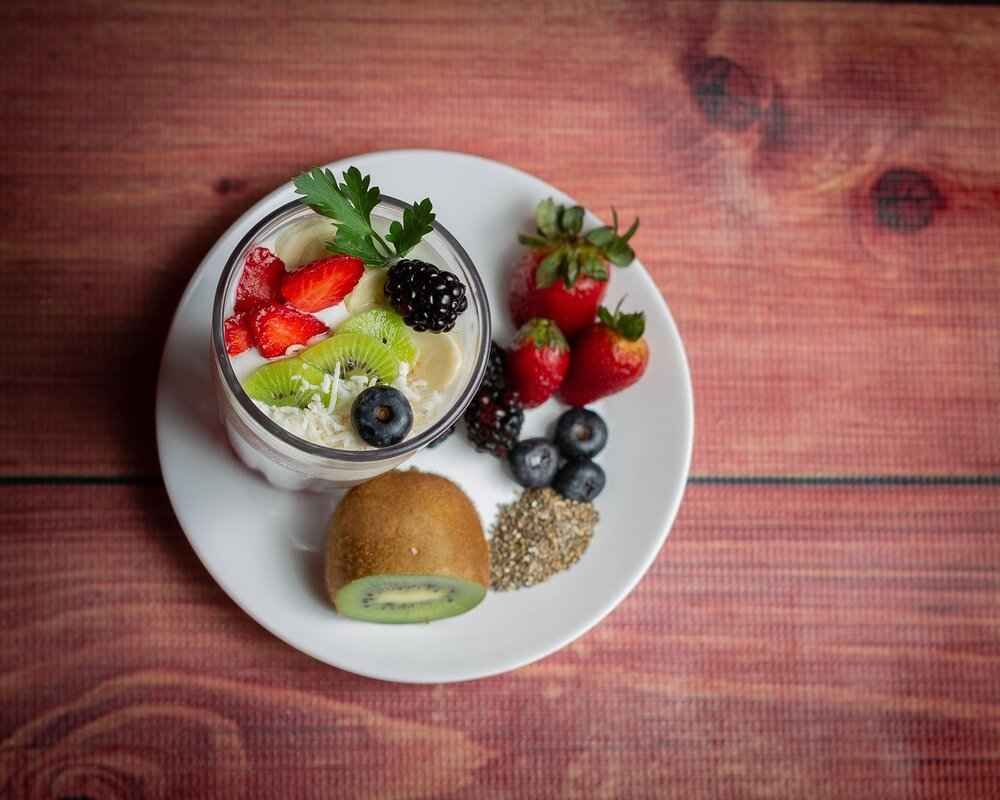
What Are Chia Seeds?
Chia seeds are remarkably small yet incredibly nutritious seeds that come from the Salvia hispanica plant, which is native to the regions of Mexico and Guatemala. These tiny black seeds have gained immense popularity worldwide, not just for their unique texture but also for their impressive health benefits and versatility in various diets.
Chia seeds are an excellent source of essential nutrients, including omega-3 fatty acids, fiber, antioxidants, and a variety of minerals that contribute to overall wellness. Their ability to absorb liquid and form a gel-like consistency makes them a fantastic ingredient for a wide range of recipes.
Chia seeds are densely packed with nutrients. Here are some of the key components:
- Omega-3 Fatty Acids: These healthy fats are crucial for heart health and brain function.
- Fiber: Chia seeds contain a significant amount of both soluble and insoluble fiber, aiding in digestion and promoting a feeling of fullness.
- Protein: They provide a plant-based source of protein, making them an excellent choice for vegetarians and vegans.
- Minerals: Chia seeds are rich in calcium, magnesium, and phosphorus, which are vital for bone health.
The health benefits of chia seeds are numerous:
- Digestive Health: The high fiber content helps maintain regular bowel movements and prevents constipation.
- Weight Management: Their ability to absorb water and expand in the stomach can help control appetite and reduce calorie intake.
- Heart Health: Omega-3 fatty acids help lower cholesterol levels and reduce inflammation, promoting cardiovascular health.
- Bone Health: The combination of calcium, magnesium, and phosphorus in chia seeds supports bone density and strength.
Incorporating chia seeds into your meals is simple and versatile:
- Chia Pudding: Mix chia seeds with your choice of milk or yogurt, let them soak overnight, and enjoy a nutritious breakfast.
- Smoothies: Add a tablespoon of chia seeds to your favorite smoothie for an extra nutrient boost.
- Baked Goods: Use chia seeds as an egg substitute in recipes or sprinkle them on top of bread and muffins before baking.
To maintain the freshness of your chia seeds, store them in a cool, dry place in an airtight container. This will help prolong their shelf life and preserve their nutritional benefits.
In summary, chia seeds are a powerhouse of nutrients that can easily be included in your daily diet. Their health benefits, combined with their versatility in recipes, make them a fantastic addition to any meal plan.
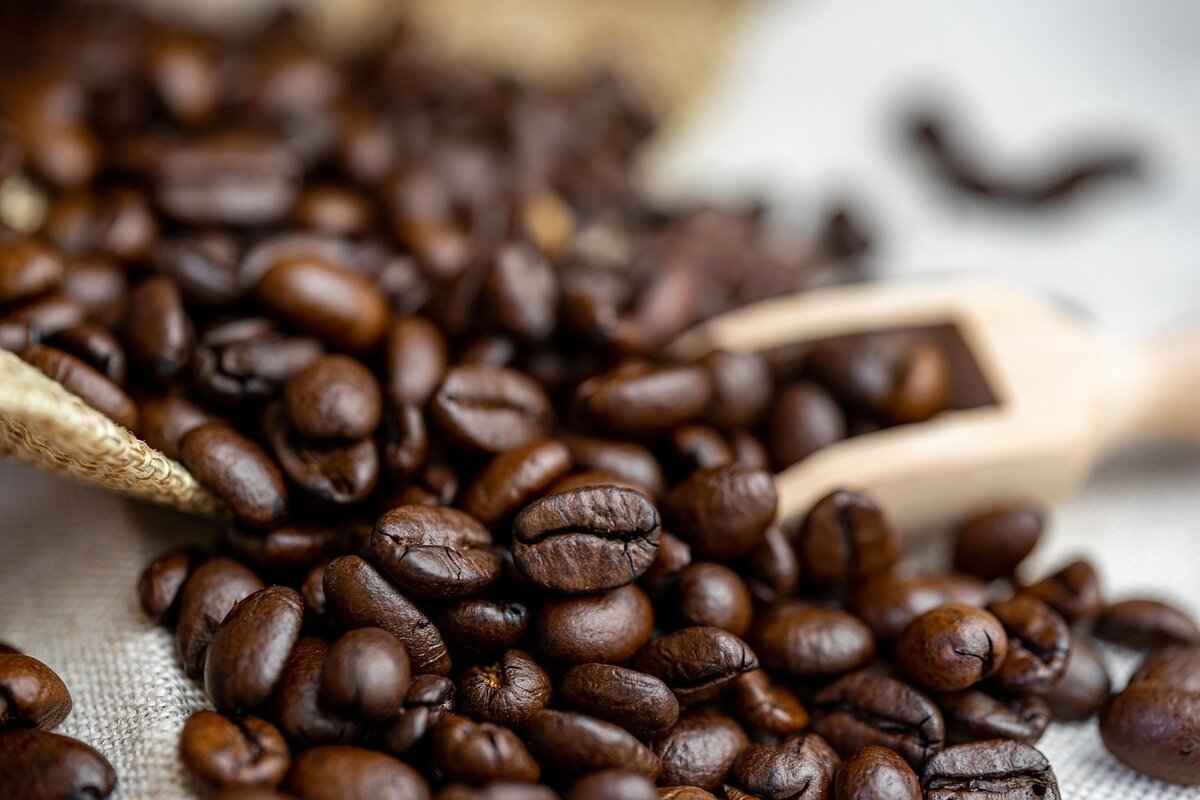
Why Are Chia Seeds Considered a Superfood?
Chia seeds have gained immense popularity in recent years, often being hailed as a superfood. This designation is attributed to their impressive nutritional profile, which includes a rich source of omega-3 fatty acids, fiber, antioxidants, and essential minerals. These elements collectively contribute to a range of health benefits that can enhance overall wellness.
Chia seeds are loaded with nutrients that play pivotal roles in maintaining good health. Here’s a breakdown of their key components:
- Omega-3 Fatty Acids: Chia seeds are one of the best plant-based sources of alpha-linolenic acid (ALA), an essential omega-3 fatty acid that supports heart health and reduces inflammation.
- Fiber: With about 11 grams of fiber per ounce, chia seeds promote digestive health, aid in weight management, and stabilize blood sugar levels.
- Antioxidants: These tiny seeds are rich in antioxidants, which help combat oxidative stress and protect the body from free radical damage.
- Essential Minerals: Chia seeds are a great source of calcium, magnesium, and phosphorus, all crucial for bone health and metabolic functions.
The combination of these nutrients allows chia seeds to contribute significantly to various aspects of health:
- Heart Health: Regular consumption of chia seeds can lower cholesterol levels and reduce the risk of heart disease due to their high omega-3 content.
- Digestive Health: The fiber in chia seeds aids in digestion, ensuring regular bowel movements and preventing constipation.
- Weight Management: When soaked in liquid, chia seeds expand and create a gel-like consistency, promoting a feeling of fullness and reducing overall calorie intake.
- Bone Strength: The calcium and phosphorus content in chia seeds supports bone density and health, making them beneficial for preventing osteoporosis.
Incorporating chia seeds into your daily meals is simple and versatile. Here are some practical tips:
- Chia Pudding: Mix chia seeds with your choice of milk or yogurt and let them sit overnight for a nutritious breakfast or snack.
- Smoothies: Add a tablespoon of chia seeds to your favorite smoothie for an extra nutritional boost.
- Baking: Use chia seeds as an egg substitute in baking by mixing them with water to create a gel-like consistency.
- Salads and Soups: Sprinkle chia seeds on salads or stir them into soups for added texture and nutrition.
The typical serving size of chia seeds is about 1-2 tablespoons per day. This amount provides a sufficient dose of nutrients while allowing you to enjoy their health benefits without overconsumption.
In summary, the high nutritional content of chia seeds, including omega-3 fatty acids, fiber, antioxidants, and essential minerals, makes them a powerful addition to any diet. Their versatility in culinary applications further enhances their appeal, making it easy to incorporate these tiny seeds into your meals. By adding chia seeds to your daily routine, you can take a significant step towards improving your overall health and well-being.
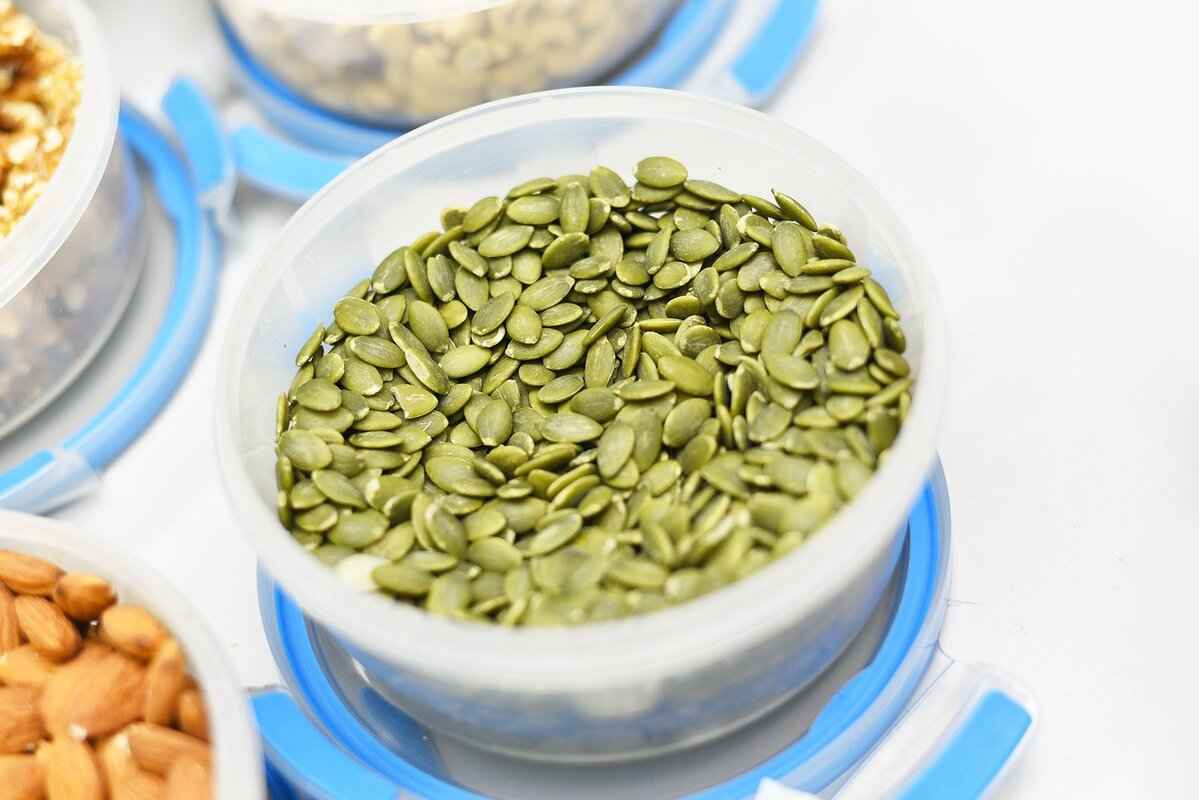
How Do Chia Seeds Promote Digestive Health?
Chia seeds have gained immense popularity in recent years, not only for their versatility in cooking but also for their remarkable health benefits. One of the most significant advantages of incorporating chia seeds into your diet is their ability to promote digestive health. This article delves into how chia seeds contribute to a healthy digestive system and why they should be a staple in your diet.
The high fiber content in chia seeds plays a crucial role in enhancing digestive function. With approximately 11 grams of fiber per ounce, chia seeds are an excellent source of both soluble and insoluble fiber. This combination is essential for maintaining regular bowel movements and preventing constipation.
- Soluble Fiber: This type of fiber dissolves in water, forming a gel-like substance that helps to slow digestion. It can also aid in regulating blood sugar levels, making it beneficial for those with diabetes.
- Insoluble Fiber: This fiber adds bulk to the stool and helps food pass more quickly through the stomach and intestines, thus preventing constipation.
By consuming chia seeds regularly, you can significantly improve your gut health. The fiber content promotes the growth of healthy gut bacteria, which is vital for a well-functioning digestive system. A healthy gut microbiome can enhance nutrient absorption and reduce digestive issues such as bloating, gas, and discomfort.
Incorporating chia seeds into your daily diet is easy and can be done in various ways:
- Add them to smoothies for a nutritious boost.
- Mix them into yogurt or oatmeal for added texture and fiber.
- Use them in baked goods such as muffins or bread.
- Prepare chia pudding by soaking them in almond milk or coconut milk overnight.
When chia seeds are soaked in liquid, they expand and form a gel-like consistency, which can help you feel fuller for longer. This not only aids in digestion but also assists in weight management by curbing appetite.
For individuals suffering from digestive disorders such as irritable bowel syndrome (IBS) or inflammatory bowel disease (IBD), chia seeds can offer relief. The anti-inflammatory properties of chia seeds, combined with their fiber content, can help soothe the digestive tract and reduce symptoms associated with these conditions.
Moreover, the omega-3 fatty acids present in chia seeds can help reduce inflammation throughout the body, further supporting digestive health. By incorporating chia seeds into your diet, you may experience improved gut health and a reduction in digestive discomfort.
To reap the digestive benefits of chia seeds, a typical serving size is about 1-2 tablespoons per day. This amount provides sufficient fiber to promote regular bowel movements without overwhelming your digestive system.
As with any dietary change, it is essential to increase your fiber intake gradually and drink plenty of water to prevent any gastrointestinal discomfort. This approach will help your digestive system adjust to the increased fiber content effectively.
In summary, chia seeds are a powerhouse of nutrition that can significantly enhance digestive health. Their high fiber content, combined with their versatility in meals, makes them an excellent addition to any diet.
What Type of Fiber Do Chia Seeds Contain?
Chia seeds are renowned for their impressive nutritional profile, particularly their fiber content. They contain both soluble and insoluble fiber, which play crucial roles in promoting digestive health and maintaining stable blood sugar levels. Understanding the types of fiber present in chia seeds can help you appreciate their benefits and incorporate them effectively into your diet.
Soluble Fiber: The Gel-Forming Fiber
Soluble fiber is known for its ability to absorb water and form a gel-like substance. This property is particularly beneficial for digestive health, as it helps to:
- Slow Down Digestion: The gel-like consistency of soluble fiber can slow the passage of food through the digestive tract, which aids in nutrient absorption.
- Stabilize Blood Sugar Levels: By slowing digestion, soluble fiber helps regulate the release of glucose into the bloodstream, preventing spikes in blood sugar levels.
- Support Healthy Cholesterol Levels: Soluble fiber can bind to cholesterol in the digestive system, helping to lower overall cholesterol levels and reduce the risk of heart disease.
Insoluble Fiber: The Bulk-Forming Fiber
In contrast, insoluble fiber does not dissolve in water and adds bulk to the stool. This type of fiber is essential for:
- Promoting Regular Bowel Movements: Insoluble fiber helps to move food through the digestive tract, preventing constipation and promoting overall gut health.
- Supporting a Healthy Gut Microbiome: The bulk provided by insoluble fiber can help feed beneficial gut bacteria, contributing to a balanced microbiome.
- Reducing the Risk of Digestive Disorders: A diet rich in insoluble fiber may lower the risk of developing conditions like diverticulitis and hemorrhoids.
How Do Soluble and Insoluble Fiber Work Together?
The combination of soluble and insoluble fiber in chia seeds creates a synergistic effect that enhances digestive health. While soluble fiber works to regulate blood sugar and cholesterol levels, insoluble fiber ensures that digestion remains efficient and regular. This balance is vital for overall gut function and can lead to improved health outcomes.
Incorporating Chia Seeds into Your Diet
Adding chia seeds to your meals is a simple way to boost your fiber intake. Here are some practical tips:
- Soak Them: Soaking chia seeds in water or milk before consumption can enhance their digestibility and maximize their health benefits.
- Add to Smoothies: Blend chia seeds into smoothies for a nutrient boost without altering the flavor significantly.
- Mix with Yogurt: Stir chia seeds into yogurt for a tasty and fiber-rich snack.
- Use in Baking: Incorporate chia seeds into baked goods like muffins and breads to enhance their nutritional profile.
In conclusion, chia seeds are an excellent source of both soluble and insoluble fiber, which work together to support digestive health and regulate blood sugar levels. By incorporating these tiny seeds into your diet, you can enjoy their numerous health benefits while enhancing your overall gut function.
How to Incorporate Chia Seeds for Better Digestion?
Incorporating chia seeds into your meals can be both easy and enjoyable. These tiny seeds are not only versatile but also packed with essential nutrients that can significantly enhance your overall health, particularly your digestive system. Here are some practical ways to integrate chia seeds into your daily diet:
- Smoothies: Adding chia seeds to your smoothies is a fantastic way to boost your fiber intake. Simply blend a tablespoon of chia seeds with your favorite fruits, vegetables, and a liquid base like almond milk or yogurt. The seeds will not only thicken your smoothie but also provide a nutritious punch.
- Yogurt: Stirring chia seeds into yogurt is another simple method to enjoy their benefits. You can mix them into plain or flavored yogurt, creating a delightful texture while increasing the fiber content. This combination can make for a satisfying breakfast or snack.
- Baked Goods: Chia seeds can be incorporated into various baked goods like muffins, bread, or pancakes. They can replace eggs in recipes when mixed with water, creating a gel-like consistency that binds ingredients together. This is particularly useful for vegan baking.
- Salads: Sprinkling chia seeds on top of salads adds a nice crunch and nutritional value. They can be mixed into dressings or simply used as a topping, enhancing the fiber content of your meal.
- Chia Pudding: One of the most popular ways to enjoy chia seeds is by making chia pudding. Combine chia seeds with your choice of milk, sweetener, and flavorings like vanilla or cocoa. Allow the mixture to sit overnight in the refrigerator, and you’ll have a delicious, creamy dessert or breakfast option.
- Soups and Stews: Adding chia seeds to soups and stews not only thickens the dish but also enhances its nutritional profile. Stir in a tablespoon of chia seeds towards the end of the cooking process to maintain their health benefits.
By incorporating chia seeds into your meals, you can easily enhance your fiber intake, which is crucial for promoting digestive health. The soluble fiber in chia seeds forms a gel-like substance in the gut, which can help regulate bowel movements and prevent constipation. This makes chia seeds an excellent addition to your daily diet, especially if you are looking to improve your digestive wellness.
Moreover, chia seeds are incredibly easy to prepare and require no cooking. Their neutral flavor means they can blend seamlessly into a wide variety of dishes without overpowering other ingredients. Whether you are a busy professional or a health-conscious individual, chia seeds offer a simple way to boost your nutrition effortlessly.
In summary, incorporating chia seeds into your meals is not only straightforward but also beneficial for your digestive health. With numerous ways to enjoy them, from smoothies to baked goods, these super seeds can easily become a staple in your diet.
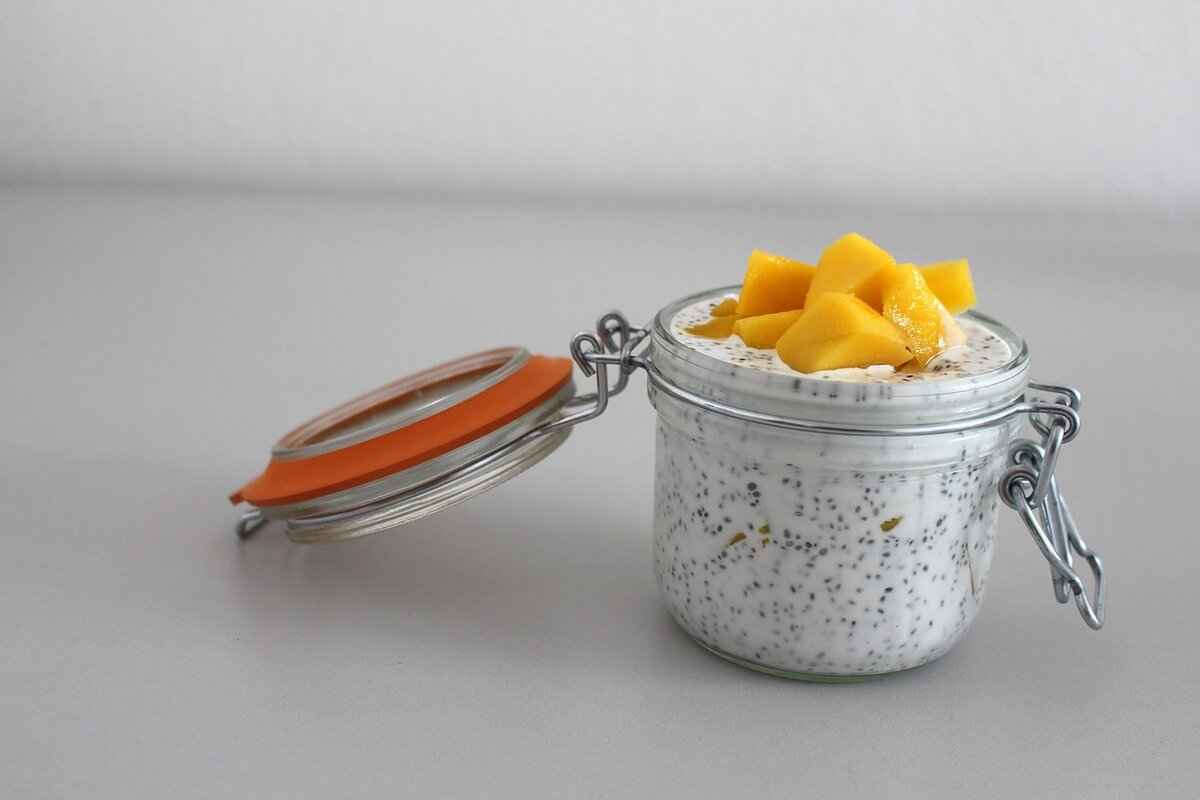
Can Chia Seeds Aid in Weight Management?
Chia seeds have gained enormous popularity in recent years, particularly among those seeking to manage their weight effectively. These tiny seeds, rich in nutrients, offer a range of benefits that can support weight loss efforts. One of the primary reasons chia seeds are effective for weight management is their remarkable ability to absorb liquid. When soaked in water or any other liquid, chia seeds can expand up to 10-12 times their original size, forming a gel-like consistency. This unique property plays a significant role in promoting a feeling of fullness, which can help reduce overall calorie intake.
How Do Chia Seeds Help Control Appetite?
The expansion of chia seeds in the stomach creates a sensation of satiety, which can help curb cravings and prevent overeating. When consumed before meals, chia seeds can lead to reduced hunger levels, making it easier to stick to a healthy eating plan. This gel-like consistency slows down digestion, allowing for a more gradual release of nutrients into the bloodstream, which can further enhance feelings of fullness.
What is the Recommended Serving Size for Weight Loss?
To effectively incorporate chia seeds into your diet for weight management, a typical serving size is about 1-2 tablespoons per day. This amount provides a substantial dose of fiber, protein, and healthy fats, all of which contribute to satiety and overall health. Adding chia seeds to your meals can be as simple as mixing them into smoothies, yogurt, or oatmeal, or even using them as a thickening agent in soups and sauces.
What Makes Chia Seeds a Nutrient Powerhouse?
In addition to their appetite-suppressing qualities, chia seeds are nutrient-dense. They are an excellent source of omega-3 fatty acids, which are essential for heart health, and they also provide a significant amount of fiber. The fiber content in chia seeds is particularly beneficial for digestive health, promoting regular bowel movements and preventing constipation. This combination of nutrients not only supports weight management but also contributes to overall well-being.
Can Chia Seeds Be Part of a Balanced Diet?
Absolutely! Chia seeds are versatile and can be easily integrated into a balanced diet. They can be sprinkled on salads, blended into smoothies, or used in baking. Their neutral flavor allows them to complement a wide range of dishes without overpowering other ingredients. Moreover, chia seeds are gluten-free and suitable for various dietary restrictions, making them an excellent choice for many individuals.
Are There Any Risks Associated with Chia Seeds?
While chia seeds offer numerous benefits, it’s essential to consume them in moderation. Due to their high fiber content, excessive consumption can lead to digestive discomfort, including bloating and gas. To avoid these issues, it’s advisable to gradually increase your intake of chia seeds and ensure adequate hydration, as they absorb a significant amount of water.
Incorporating Chia Seeds into Your Weight Management Strategy
- Start your day with chia seed pudding for a nutritious breakfast.
- Add chia seeds to smoothies for an extra boost of fiber and protein.
- Use them as a topping for yogurt or oatmeal.
- Incorporate them into baked goods, such as muffins or bread, for added texture and nutrition.
In summary, chia seeds can be a valuable addition to your weight management strategy. Their ability to promote a feeling of fullness, combined with their rich nutrient profile, makes them an ideal choice for those looking to maintain a healthy weight. By incorporating chia seeds into your daily diet, you can enjoy their many benefits while also supporting your overall health.
How Do Chia Seeds Help Control Appetite?
Chia seeds have gained significant attention in the health and wellness community, primarily for their remarkable ability to assist in weight management. One of the key mechanisms through which chia seeds help control appetite is their unique gel-like consistency when hydrated. This feature not only enhances their nutritional profile but also plays a crucial role in regulating hunger and promoting satiety.
Chia seeds are tiny but mighty, derived from the Salvia hispanica plant. When soaked in liquid, they can absorb up to 10-12 times their weight, forming a viscous gel. This gel-like texture is essential for slowing down digestion, which can significantly impact appetite control.
When chia seeds are consumed, they expand in the stomach, creating a feeling of fullness. This mechanism of action can help reduce overall calorie intake, making them a valuable addition to any weight loss strategy. Research indicates that foods that promote satiety can help individuals manage their weight more effectively by reducing the urge to snack between meals.
The slower digestion facilitated by chia seeds means that glucose is released into the bloodstream at a more gradual pace. This can help prevent spikes in blood sugar levels, which are often associated with feelings of hunger and cravings for unhealthy foods. By maintaining stable blood sugar levels, chia seeds can aid in appetite control and contribute to better overall dietary choices.
Adding chia seeds to your diet is simple and versatile. Here are some effective ways to do so:
- Chia Pudding: Mix chia seeds with your choice of milk or yogurt and let it sit overnight. This creates a delicious and filling breakfast or snack.
- Smoothies: Blend chia seeds into your favorite smoothie for added texture and nutrition.
- Salads: Sprinkle chia seeds over salads to enhance their fiber content and promote satiety.
- Baked Goods: Incorporate chia seeds into muffins, bread, or energy bars for a nutritious boost.
The recommended serving size for chia seeds is approximately 1-2 tablespoons per day. This amount is sufficient to reap the benefits of their appetite-controlling properties while also providing essential nutrients such as omega-3 fatty acids, fiber, and antioxidants.
While chia seeds are generally safe for most people, it is important to consume them in moderation. Overconsumption may lead to digestive discomfort due to their high fiber content. It is advisable to gradually introduce chia seeds into your diet, especially if you are not accustomed to high-fiber foods.
Incorporating chia seeds into your diet can be an effective strategy for controlling appetite and managing weight. Their unique ability to absorb liquid and expand in the stomach not only promotes a feeling of fullness but also contributes to better blood sugar regulation. By making chia seeds a regular part of your meals, you can enhance your overall health and support your weight loss goals.
What is the Recommended Serving Size for Weight Loss?
When it comes to incorporating chia seeds into your diet, understanding the appropriate serving size is crucial, especially for those looking to manage their weight effectively. A typical serving size of chia seeds is about 1-2 tablespoons per day. This modest amount can provide a wealth of nutrients while also aiding in weight management and enhancing feelings of satiety.
Chia seeds are known for their unique ability to absorb liquid and expand in the stomach, forming a gel-like consistency. This property not only helps to slow digestion but also promotes a feeling of fullness, making it easier to control appetite and reduce overall calorie intake. By incorporating chia seeds into your daily routine, you can leverage their nutritional benefits while supporting your weight loss goals.
Understanding the right serving size is essential for maximizing the benefits of chia seeds. Consuming too much can lead to excessive calorie intake, while too little may not provide the desired effects on satiety and nutrition. Here are a few reasons why sticking to the recommended serving size is important:
- Nutrient Balance: Chia seeds are rich in fiber, omega-3 fatty acids, and essential minerals. A serving of 1-2 tablespoons ensures you get these nutrients without overdoing it.
- Weight Management: The gel-like substance formed when chia seeds absorb liquid can help you feel fuller for longer, aiding in weight control.
- Digestive Health: The fiber content in chia seeds promotes healthy digestion, but moderation is key to avoid digestive discomfort.
Incorporating chia seeds into your meals can be both simple and delicious. Here are a few practical ways to enjoy them:
- Chia Pudding: Mix chia seeds with your choice of milk or yogurt and let them soak overnight. Add fruits and nuts for a nutritious breakfast.
- Smoothies: Blend chia seeds into your favorite smoothie for an added nutritional boost.
- Baking: Use chia seeds as an ingredient in baked goods, such as muffins or bread, to enhance their fiber content.
Chia seeds offer several benefits that can aid in weight loss:
- High Fiber Content: With approximately 10 grams of fiber per ounce, chia seeds help to keep you feeling full and satisfied.
- Protein Source: Chia seeds contain about 4 grams of protein per ounce, which can help curb hunger.
- Low in Calories: A typical serving contains only about 60 calories, making it a low-calorie addition to your diet.
When measuring chia seeds, it’s important to use the right tools to ensure you’re getting the correct serving size:
- Use a Measuring Spoon: A standard tablespoon can help you accurately measure 1-2 tablespoons of chia seeds.
- Consider Weight: If you prefer precision, consider weighing your chia seeds. One tablespoon typically weighs around 12 grams.
In conclusion, incorporating chia seeds into your diet in moderation can significantly enhance your weight management efforts. By adhering to the recommended serving size of 1-2 tablespoons per day, you can enjoy the numerous health benefits while promoting feelings of fullness and satisfaction. Start experimenting with different recipes and find the best ways to include this superfood in your daily meals!

Are Chia Seeds Beneficial for Heart Health?
Chia seeds are not just a trendy superfood; they are packed with nutrients that can significantly benefit your heart health. These tiny seeds are a powerhouse of omega-3 fatty acids, which are essential for maintaining a healthy cardiovascular system. The heart-healthy properties of chia seeds make them a vital component of a balanced diet.
Omega-3 fatty acids, particularly alpha-linolenic acid (ALA), are known for their anti-inflammatory properties. By reducing inflammation in the body, they help to lower the risk of chronic diseases, including heart disease. Research indicates that omega-3s can:
- Lower triglyceride levels: High triglyceride levels are a risk factor for heart disease.
- Reduce blood pressure: Regular consumption of omega-3s can help lower blood pressure in individuals with hypertension.
- Decrease the risk of arrhythmias: Omega-3s can help stabilize heart rhythms, reducing the likelihood of irregular heartbeats.
While fish such as salmon are commonly known for their high omega-3 content, chia seeds offer a plant-based alternative that is ideal for vegetarians and vegans. A single ounce of chia seeds contains approximately 5,000 mg of ALA, making them one of the richest plant sources of omega-3 fatty acids. This makes chia seeds an excellent choice for anyone looking to boost their omega-3 intake without consuming animal products.
In addition to omega-3 fatty acids, chia seeds are loaded with several other nutrients that promote heart health:
- Antioxidants: Chia seeds contain antioxidants that combat oxidative stress, which can lead to heart disease.
- Magnesium: This mineral plays a critical role in maintaining normal heart function and can help regulate blood pressure.
- Fiber: High fiber content in chia seeds aids in lowering cholesterol levels, further supporting cardiovascular health.
Incorporating chia seeds into your daily diet is simple and versatile. Here are some practical ideas:
- Add to smoothies: Blend chia seeds into your favorite smoothie for a nutrient boost.
- Make chia pudding: Soak chia seeds in almond milk or coconut milk overnight for a delicious and healthy breakfast.
- Sprinkle on salads: Add a tablespoon of chia seeds to your salads for added crunch and health benefits.
- Use in baking: Substitute eggs with chia seeds in recipes to enhance the nutritional profile of baked goods.
The recommended serving size of chia seeds is about 1-2 tablespoons per day. This amount provides sufficient omega-3 fatty acids and other essential nutrients without excessive calorie intake. It’s important to drink plenty of water when consuming chia seeds, as they absorb liquid and expand in the stomach.
In conclusion, chia seeds are a nutrient-dense food that can greatly benefit heart health. Their high levels of omega-3 fatty acids, combined with other heart-friendly nutrients, make them an essential addition to any diet focused on cardiovascular wellness. By incorporating chia seeds into your meals, you can take a proactive step towards a healthier heart.
How Do Omega-3 Fatty Acids Benefit Your Heart?
Omega-3 fatty acids are essential fats that play a crucial role in maintaining overall health, particularly for the heart. Found abundantly in chia seeds, these fatty acids are celebrated for their numerous cardiovascular benefits. Understanding how omega-3s contribute to heart health can help individuals make informed dietary choices.
Omega-3 fatty acids are a type of polyunsaturated fat that the body cannot produce on its own, making them essential nutrients that must be obtained through diet. The three main types include ALA (alpha-linolenic acid), found in plant sources like chia seeds, and EPA (eicosapentaenoic acid) and DHA (docosahexaenoic acid), primarily found in fish.
High triglyceride levels are a significant risk factor for heart disease. Omega-3 fatty acids have been shown to effectively lower these levels by reducing the liver’s production of triglycerides. Regular consumption of chia seeds, which are rich in ALA, can lead to improved lipid profiles, thereby enhancing cardiovascular health.
Research indicates that omega-3 fatty acids can help lower blood pressure, particularly in individuals with hypertension. They achieve this by promoting vasodilation, which is the widening of blood vessels, leading to improved blood flow and reduced strain on the heart. Including chia seeds in your diet may contribute to maintaining healthy blood pressure levels.
Numerous studies have demonstrated that omega-3 fatty acids can significantly reduce the risk of heart disease. They help decrease inflammation throughout the body, which is a known contributor to various cardiovascular conditions. Furthermore, omega-3s can prevent the formation of blood clots, reducing the likelihood of heart attacks and strokes.
In addition to omega-3 fatty acids, chia seeds contain a variety of nutrients that support heart health. These include:
- Antioxidants: Help protect the heart from oxidative stress and inflammation.
- Magnesium: Plays a vital role in regulating blood pressure and maintaining a healthy heartbeat.
- Fiber: Aids in lowering cholesterol levels and improving overall heart health.
Incorporating chia seeds into your diet is simple and versatile. Here are a few practical ways to enjoy them:
- Add them to smoothies for a nutrient boost.
- Mix them into yogurt or oatmeal for added texture and health benefits.
- Use them in baking as a healthy substitute for eggs.
The American Heart Association recommends consuming at least two servings of fatty fish per week or incorporating plant-based sources of omega-3s, such as chia seeds, into your diet. A typical serving size of chia seeds is about 1-2 tablespoons per day, providing a significant amount of ALA to support heart health.
In conclusion, the omega-3 fatty acids found in chia seeds offer substantial benefits for heart health, including lowering triglyceride levels, reducing blood pressure, and decreasing the risk of heart disease. By incorporating these tiny seeds into your daily diet, you can take proactive steps towards maintaining a healthy heart.
What Other Nutrients in Chia Seeds Support Heart Health?
Chia seeds have gained popularity as a superfood due to their impressive nutritional profile. Among the numerous benefits they offer, their positive impact on heart health is particularly noteworthy. While omega-3 fatty acids are often highlighted, chia seeds also contain a variety of other essential nutrients that contribute to cardiovascular wellness.
One of the standout minerals found in chia seeds is magnesium. This essential nutrient plays a critical role in maintaining normal heart function. Research indicates that magnesium helps regulate blood pressure, which is vital for reducing the risk of heart disease. Additionally, magnesium aids in the prevention of arterial calcification, a condition that can lead to heart complications.
Chia seeds are also rich in antioxidants, which help combat oxidative stress in the body. Oxidative stress occurs when there is an imbalance between free radicals and antioxidants, leading to cellular damage. By neutralizing free radicals, the antioxidants in chia seeds may help to protect the heart and reduce inflammation, further lowering the risk of cardiovascular diseases.
The high fiber content in chia seeds is another factor that supports heart health. Fiber helps to lower LDL cholesterol (often referred to as “bad” cholesterol) levels, which is crucial for preventing plaque buildup in the arteries. By promoting healthy cholesterol levels, chia seeds can contribute to improved blood circulation and overall heart function.
The combination of magnesium, antioxidants, and fiber in chia seeds creates a synergistic effect that enhances heart health. For instance, magnesium supports normal blood pressure levels, while fiber helps maintain healthy cholesterol levels. Together, these nutrients work to reduce the risk of heart disease and promote overall cardiovascular wellness.
To reap the heart-healthy benefits of chia seeds, consider incorporating them into your daily meals. Here are some practical tips:
- Add chia seeds to smoothies for a nutritional boost.
- Mix them into yogurt or oatmeal for added texture and health benefits.
- Use chia seeds as an egg substitute in baking for a healthier alternative.
- Sprinkle chia seeds on salads for extra crunch and nutrition.
A typical serving size of chia seeds is about 1-2 tablespoons per day. This amount provides a significant dose of essential nutrients without overwhelming your diet. Remember to drink plenty of water, as chia seeds can absorb liquid and expand in the stomach, promoting a feeling of fullness.
In conclusion, the heart health benefits of chia seeds extend beyond their omega-3 content. With their rich supply of magnesium, antioxidants, and fiber, chia seeds are a powerful addition to any diet aimed at supporting cardiovascular health. By incorporating these tiny seeds into your meals, you can take a proactive step towards a healthier heart.
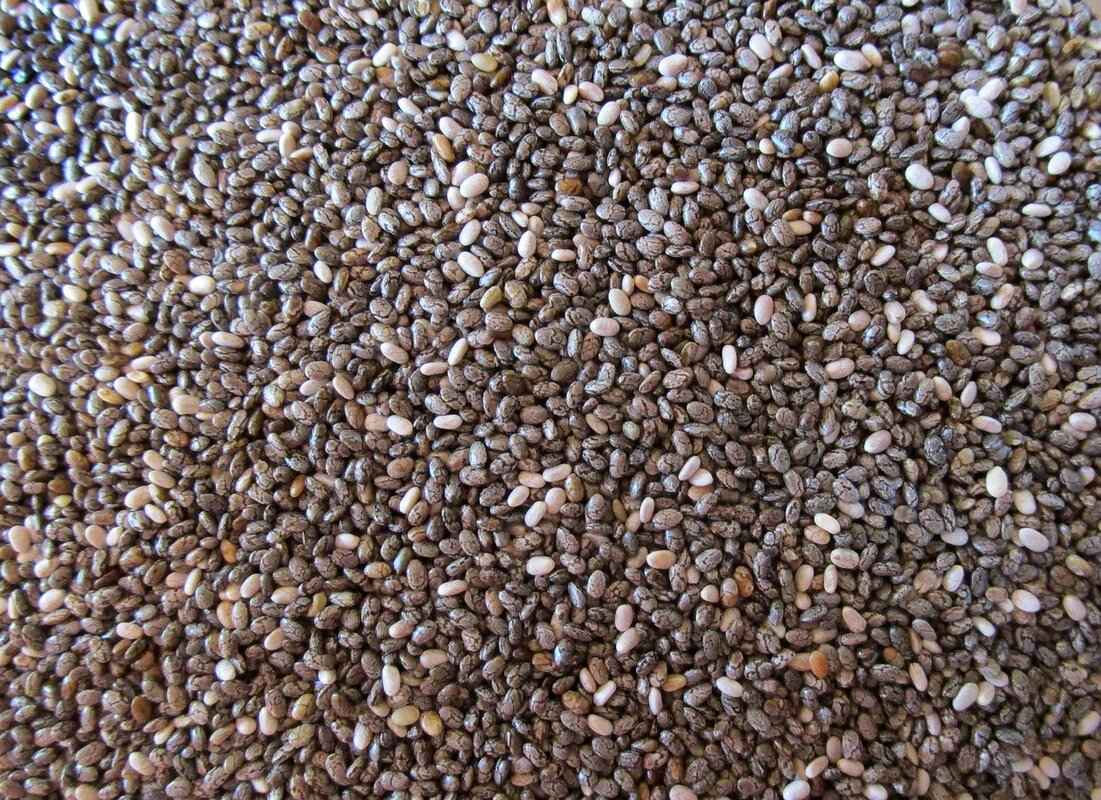
How Do Chia Seeds Contribute to Bone Health?
Chia seeds have gained popularity as a superfood, and one of their most significant contributions is to bone health. These tiny seeds are packed with essential nutrients that play a crucial role in maintaining strong and healthy bones. In this section, we will explore how chia seeds contribute to bone health, the specific nutrients they contain, and how incorporating them into your diet can be beneficial.
Chia seeds are rich in several key minerals that are vital for bone strength:
- Calcium: Essential for bone formation and maintenance.
- Phosphorus: Works in tandem with calcium to build and repair bones.
- Magnesium: Plays a role in converting vitamin D into its active form, which is necessary for calcium absorption.
In just one ounce of chia seeds, you can find approximately 18% of the recommended daily intake of calcium. This makes chia seeds one of the most calcium-rich plant-based foods available. Incorporating them into your diet can significantly contribute to your daily calcium needs, especially for those who follow a vegan or lactose-free lifestyle.
Osteoporosis is a condition characterized by weakened bones and an increased risk of fractures. The combination of calcium, magnesium, and phosphorus found in chia seeds can help strengthen bones and potentially prevent osteoporosis. Regular consumption of these seeds, along with a balanced diet rich in other nutrients, can support bone density and overall skeletal health.
While dairy products are commonly known for their calcium content, chia seeds offer a plant-based alternative that is also rich in fiber and omega-3 fatty acids. This makes them an excellent choice for individuals looking to enhance their bone health without consuming animal products. Additionally, chia seeds are versatile and can be easily added to various dishes.
Adding chia seeds to your diet is simple and can be done in multiple ways:
- Add them to smoothies for a nutritional boost.
- Mix them into yogurt or oatmeal.
- Use them as an egg substitute in baking by soaking them in water.
- Prepare chia pudding by soaking the seeds in milk or a milk alternative.
Incorporating chia seeds into your daily routine not only supports bone health but can also provide other health benefits such as improved digestive health, heart health, and weight management. These seeds are a powerhouse of nutrients that contribute to overall wellness.
In conclusion, chia seeds are a remarkable addition to any diet, particularly for those focused on maintaining bone health. With their high content of calcium, phosphorus, and magnesium, they offer a natural and effective way to strengthen bones and prevent conditions like osteoporosis. By including chia seeds in your meals, you can enjoy their numerous health benefits while enhancing your overall nutrition.
What is the Calcium Content in Chia Seeds?
Chia seeds, often hailed as a superfood, offer a remarkable nutritional profile that includes a significant amount of calcium. In fact, just one ounce of chia seeds provides approximately 18% of the recommended daily intake of calcium. This makes them one of the most calcium-rich plant foods available, which is particularly beneficial for those following a plant-based diet or anyone looking to boost their calcium intake.
Calcium is essential for various bodily functions, including maintaining strong bones and teeth, muscle contraction, and nerve transmission. The body requires a steady supply of calcium to prevent deficiencies that could lead to conditions such as osteoporosis, especially as we age. Incorporating chia seeds into your diet can be an effective strategy to enhance your calcium levels.
How Do Chia Seeds Compare to Other Calcium Sources?
- One ounce of chia seeds offers about 177 mg of calcium.
- In comparison, one cup of cooked broccoli provides around 62 mg of calcium.
- Similarly, a cup of fortified almond milk contains approximately 450 mg of calcium, but chia seeds are still a strong contender among plant sources.
What sets chia seeds apart is not just their calcium content but also their versatility. They can be easily incorporated into a variety of dishes, making it simple to enrich your meals with this vital mineral. Whether you add them to smoothies, yogurt, or baked goods, chia seeds can enhance both the nutritional value and texture of your meals.
Can Chia Seeds Help in Preventing Osteoporosis?
The combination of calcium, along with other minerals such as magnesium and phosphorus found in chia seeds, plays a crucial role in bone health. Magnesium is vital for converting vitamin D into its active form, which helps in calcium absorption. Phosphorus works in tandem with calcium to build and maintain strong bones. Together, these nutrients can help reduce the risk of osteoporosis, particularly when consumed as part of a balanced diet.
How to Incorporate Chia Seeds into Your Diet?
Incorporating chia seeds into your daily routine is simple and enjoyable. Here are a few practical suggestions:
- Chia Pudding: Mix chia seeds with your choice of milk or yogurt and let it sit overnight in the refrigerator for a delicious and nutritious breakfast.
- Smoothies: Add a tablespoon of chia seeds to your favorite smoothie for an extra boost of calcium and fiber.
- Baking: Substitute chia seeds for eggs in recipes by mixing one tablespoon of chia seeds with three tablespoons of water and letting it sit until it forms a gel-like consistency.
By integrating chia seeds into your meals, you can enjoy a myriad of health benefits while ensuring you meet your calcium needs effectively.
In summary, chia seeds are not only a rich source of calcium but also provide other essential nutrients that contribute to overall health. Their ease of incorporation into various dishes makes them a practical choice for anyone looking to enhance their diet. Whether you are concerned about bone health or simply want to add more nutrients to your meals, chia seeds are a valuable addition to any diet.
Can Chia Seeds Help Prevent Osteoporosis?
Osteoporosis is a significant health concern, particularly among older adults, leading to weakened bones and a higher risk of fractures. Incorporating nutrient-dense foods into your diet is essential for bone health, and chia seeds are a powerful ally in this regard. These tiny seeds are packed with essential minerals that play a crucial role in maintaining bone density and overall skeletal strength.
The combination of calcium, magnesium, and phosphorus is vital for bone development and maintenance. Each of these minerals contributes uniquely to bone health:
- Calcium: This mineral is the primary building block of bones. It helps to maintain bone density and strength, reducing the risk of fractures.
- Magnesium: Essential for converting vitamin D into its active form, magnesium aids in calcium absorption and plays a role in bone structure.
- Phosphorus: Working in tandem with calcium, phosphorus is crucial for bone formation and mineralization.
Chia seeds are an excellent source of these bone-strengthening nutrients. Just one ounce of chia seeds provides approximately 18% of the recommended daily intake of calcium, along with significant amounts of magnesium and phosphorus. This nutrient profile makes chia seeds a powerful addition to a bone-friendly diet.
The synergistic effect of calcium, magnesium, and phosphorus in chia seeds can help strengthen bones and prevent osteoporosis. Regular consumption of chia seeds, especially when combined with other calcium-rich foods, can enhance bone density significantly. This is particularly important for individuals at risk of osteoporosis, such as postmenopausal women and older adults.
Incorporating chia seeds into your daily meals is easy and versatile. Here are some practical suggestions:
- Add chia seeds to smoothies for a nutritional boost.
- Make chia pudding by soaking seeds in milk or a dairy alternative overnight.
- Sprinkle chia seeds on salads or yogurt for added crunch and nutrition.
- Use them as an egg substitute in baking by mixing with water to create a gel-like consistency.
Besides their bone-strengthening properties, chia seeds offer numerous health benefits. They are rich in omega-3 fatty acids, which can help reduce inflammation, support heart health, and promote overall wellness. Their high fiber content aids in digestion and helps maintain a healthy weight, further contributing to bone health by reducing the risk of obesity-related issues.
In summary, chia seeds are a powerhouse of nutrition that can play a significant role in preventing osteoporosis. Their unique combination of calcium, magnesium, and phosphorus, along with other health benefits, makes them an essential addition to a balanced diet. By incorporating chia seeds into your meals, you can take a proactive step towards maintaining strong and healthy bones.

How Can Chia Seeds Be Prepared and Consumed?
Chia seeds are not only nutritious but also incredibly versatile, making them a fantastic addition to various meals and snacks. Their unique properties allow them to be consumed in several ways, enhancing both flavor and texture while providing a wealth of health benefits.
Chia seeds can be prepared and consumed in numerous ways, ensuring that they can easily fit into any diet. Here are some popular methods:
- Soaking in Liquid: One of the most common ways to prepare chia seeds is by soaking them in water, milk, or juice. When soaked, chia seeds absorb liquid and expand, forming a gel-like consistency. This can be used as a base for chia pudding, a nutritious and filling breakfast option.
- Adding to Recipes: Chia seeds can be easily incorporated into a variety of recipes. They can be sprinkled on top of salads, blended into smoothies, or mixed into oatmeal. Their mild flavor allows them to blend seamlessly without overpowering the dish.
- Baking Substitute: Chia seeds serve as an excellent egg substitute in vegan baking. By mixing one tablespoon of chia seeds with three tablespoons of water and allowing it to sit for a few minutes, you create a gel that can replace one egg in recipes like muffins or pancakes.
- Chia Seed Gel: Besides using them in their whole form, you can create a chia gel that can be added to various dishes. To make this, simply mix chia seeds with water (1:6 ratio) and let it sit until it thickens. This gel can be added to smoothies, sauces, or used in desserts.
Chia seeds are incredibly versatile and can be used in a variety of delicious recipes:
- Chia Pudding: Combine soaked chia seeds with almond milk and a sweetener of your choice. Let it sit overnight, and in the morning, top it with fruits and nuts for a nutritious breakfast.
- Chia Smoothies: Add a tablespoon of chia seeds to your favorite smoothie for an extra boost of fiber and omega-3 fatty acids.
- Baked Goods: Incorporate chia seeds into muffins, breads, or cookies to enhance their nutritional profile without altering the taste.
To ensure that your chia seeds remain fresh and retain their nutritional benefits, proper storage is essential:
- Airtight Container: Store chia seeds in an airtight container to protect them from moisture and air, which can lead to spoilage.
- Cool, Dry Place: Keep the container in a cool, dry place, away from direct sunlight. A pantry or cupboard is ideal.
- Refrigeration: For those who buy in bulk, consider refrigerating chia seeds to prolong their shelf life.
In summary, chia seeds are a versatile superfood that can be prepared and consumed in various ways. Whether you choose to soak them, add them to recipes, or use them as a baking substitute, their nutritional value remains intact. By incorporating chia seeds into your diet, you can enjoy their numerous health benefits while enhancing your meals with their unique texture and flavor.
What Are Some Popular Chia Seed Recipes?
Chia seeds have gained immense popularity in the culinary world, and for good reason. These tiny seeds are not only packed with nutrients but also offer a unique texture that can elevate a variety of dishes. Here, we explore some popular chia seed recipes that highlight their versatility and health benefits.
Chia pudding is a simple yet delicious way to enjoy chia seeds. To make this dish, combine 1/4 cup of chia seeds with 1 cup of your favorite milk (dairy or plant-based) and a sweetener of your choice, such as honey or maple syrup. Stir well and let it sit in the refrigerator for at least 2 hours or overnight. The seeds will absorb the liquid and create a creamy, pudding-like texture. Top with fresh fruits, nuts, or granola for added flavor and crunch.
Incorporating chia seeds into smoothies is an excellent way to boost their nutritional content. Simply add 1-2 tablespoons of chia seeds to your favorite smoothie recipe. They blend seamlessly and provide a rich source of fiber and omega-3 fatty acids. A popular combination includes spinach, banana, almond milk, and a tablespoon of chia seeds. This not only enhances the nutritional profile but also adds a delightful thickness to your drink.
Chia seeds can also be incorporated into various baked goods, such as muffins, bread, and pancakes. They can act as a binding agent when mixed with water, making them a great egg substitute in vegan baking. To replace one egg, mix 1 tablespoon of chia seeds with 3 tablespoons of water and let it sit until it forms a gel-like consistency. This method not only adds moisture but also increases the fiber content of your baked treats.
For a quick and healthy snack, consider making homemade chia seed energy bars. Combine 1 cup of oats, 1/2 cup of nut butter, 1/4 cup of honey, and 1/4 cup of chia seeds in a bowl. Mix well, press the mixture into a lined baking dish, and refrigerate until firm. Cut into bars and enjoy a nutrient-dense snack that is perfect for on-the-go energy.
Chia seeds can also be used to make a quick and healthy jam. Combine 2 cups of fresh or frozen fruit with 2 tablespoons of chia seeds and a sweetener, if desired. Mash the fruit and let the mixture sit for about 30 minutes until it thickens. This jam is a fantastic topping for toast, yogurt, or desserts, providing a delicious and nutritious alternative to store-bought options.
Incorporating chia seeds into your diet can be both easy and enjoyable. From puddings to smoothies and baked goods, these versatile seeds enhance texture and nutrition without overwhelming flavors. With their numerous health benefits, it’s no wonder that chia seeds have become a staple in many health-conscious kitchens.
How to Store Chia Seeds for Maximum Freshness?
Chia seeds are a remarkable superfood, celebrated for their numerous health benefits and versatility in various diets. However, to fully enjoy these advantages, proper storage is essential. In this section, we will explore how to store chia seeds for maximum freshness and longevity.
Chia seeds, like many other natural foods, can degrade over time if not stored correctly. Their nutritional benefits can diminish, and they may even develop an unpleasant taste or odor. Proper storage not only helps to maintain their freshness but also preserves their essential nutrients, ensuring you get the most out of this superfood.
- Use an Airtight Container: Always store chia seeds in an airtight container to prevent exposure to air and moisture, which can lead to spoilage.
- Keep Them Cool: Store chia seeds in a cool, dry place away from direct sunlight. A pantry or a cupboard is often ideal.
- Avoid Humidity: High humidity can cause chia seeds to clump together and spoil. Ensure that the storage area is dry.
- Consider Refrigeration: For extended shelf life, consider storing chia seeds in the refrigerator. This can help maintain their freshness for a longer period.
- Check Expiration Dates: Always check the expiration date on the packaging when purchasing chia seeds. Consuming them beyond this date may compromise their quality.
When stored properly, chia seeds can last for up to two years without losing their nutritional value. However, it’s always a good idea to check for any signs of spoilage, such as an off smell or change in texture, before use.
Even with proper storage, it’s essential to be vigilant. Here are some signs that your chia seeds may have gone bad:
- Off Smell: Fresh chia seeds have a mild, nutty aroma. If they smell rancid or sour, it’s best to discard them.
- Change in Texture: If the seeds appear sticky or clumped together, they may have absorbed moisture and should not be consumed.
- Discoloration: Fresh chia seeds are typically black or white. Any significant change in color could indicate spoilage.
Yes, you can freeze chia seeds to extend their shelf life even further. Just ensure they are in an airtight container or freezer bag to prevent moisture from getting in. When you’re ready to use them, simply take out the desired amount and allow them to thaw at room temperature.
In summary, proper storage of chia seeds is crucial for maintaining their freshness and nutritional benefits. By following the guidelines outlined above, you can enjoy this superfood in your diet for many months to come. Remember to always check for signs of spoilage and consider refrigeration or freezing for optimal longevity.
Frequently Asked Questions
- What are chia seeds?
Chia seeds are tiny black seeds from the Salvia hispanica plant, native to Mexico and Guatemala. They are packed with nutrients, making them a popular superfood.
- How do chia seeds promote digestive health?
The high fiber content in chia seeds aids digestion by promoting regular bowel movements and preventing constipation, making them an excellent addition to a healthy diet.
- Can chia seeds help with weight management?
Yes! Chia seeds can absorb liquid and expand in your stomach, helping you feel fuller for longer and reducing overall calorie intake.
- Are chia seeds good for heart health?
Absolutely! They are rich in omega-3 fatty acids, which can reduce inflammation, lower cholesterol levels, and promote overall heart health.
- How can I incorporate chia seeds into my diet?
Chia seeds are versatile; you can add them to smoothies, yogurt, baked goods, or even make chia pudding for a nutritious treat!
- What is the recommended serving size for chia seeds?
A typical serving size is about 1-2 tablespoons per day, which provides essential nutrients while helping with weight management.
- How should I store chia seeds?
To keep them fresh, store chia seeds in a cool, dry place in an airtight container. This helps prolong their shelf life and preserve their nutritional benefits.














